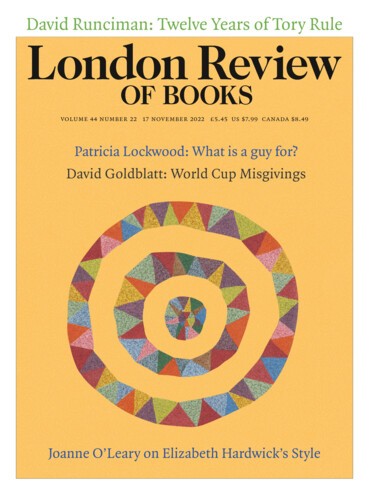Thirty-nine asylum seekers were received onto the Bibby Stockholm, moored off Portland, on 7 August. The opening of the barge had been delayed by fire safety issues including a door being fitted the wrong way around, but Robert Jenrick, the immigration minister, told Sky News: ‘I can absolutely assure you that this is a safe facility.’ On the day the asylum seekers arrived preliminary results suggested the presence of Legionella in the water supply – the bacterium that causes the form of pneumonia known as Legionnaires’ disease. They were not evacuated until four days later.
Liam Shaw
Liam Shaw is a Wellcome-funded research fellow at the MacLean Lab in Oxford, researching bacterial genetics. He is writing a book about the history of antibiotics.
On 18 July 2003, Johnson & Johnson filed a patent for bedaquiline, a new antibiotic against Mycobacterium tuberculosis. It was first approved as a medicine in the US in 2012 and is now listed as an essential medicine by the WHO. What should a fair price be for an essential drug? J&J sell bedaquiline at tiered prices around the world: it is more expensive (but easily available) in wealthy countries and cheaper (but hard to come by) where it is most needed. According to Médecins Sans Frontières, in late 2022 it was nearly three times as expensive as it would be in low-income countries if generic forms were available.
It has been reported that a new antibiotic was ‘discovered using AI’. This needs a bit of unpacking. Finding any new drug means searching through ‘chemical space’ – the many possible configurations of atoms that can make up molecules. It’s difficult to get a grip on how vast this universe of possibility is. Most drugs consist of molecules with fewer than thirty atoms and a molecular mass of less than 500 daltons (a hydrogen atom has a mass of one dalton, give or take). It’s hard to estimate, but even if you restrict yourself to a handful of elements (carbon, hydrogen, oxygen, nitrogen, sulphur) there are at least 1060 possible molecules that fit these criteria. This is a big number, more than a thousand times the number of hydrogen atoms in the Sun. Exploring this chemical universe in its entirety is impossible. The hope is that using predictive algorithms from machine learning can help guide you to the right galaxy.
On 12 November, a man travelled to the UK on a small boat across the Channel. On arrival in England, he was taken to Manston processing centre in Kent. On the night of 18 November, he became unwell and was taken to hospital. He died the following morning. The Home Office said there was ‘no evidence’ that he had died of an infectious disease. A week later, a follow-up PCR test came back positive for diphtheria.
In the Photic Zone: Flower Animals
Liam Shaw, 17 November 2022
On an atoll in the Indian Ocean, on an April day in 1836 when the water was unusually smooth, Charles Darwin wandered out over a coral reef. He gazed through the water into the ‘gullies and hollows’ below. He admired the scene, though not excessively. The naturalists he had read had described ‘submarine grottos decked with a thousand beauties’. This was, he thought,...
Read anywhere with the London Review of Books app, available now from the App Store for Apple devices, Google Play for Android devices and Amazon for your Kindle Fire.
Sign up to our newsletter
For highlights from the latest issue, our archive and the blog, as well as news, events and exclusive promotions.


